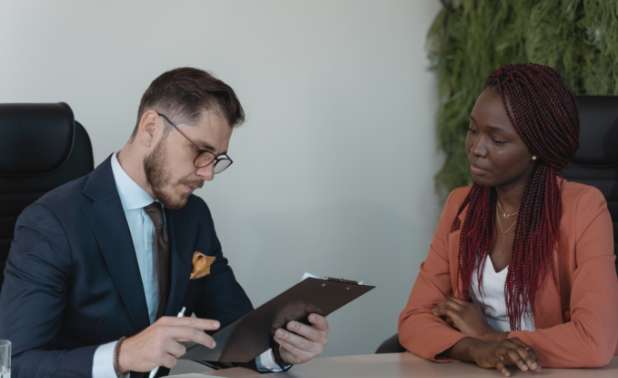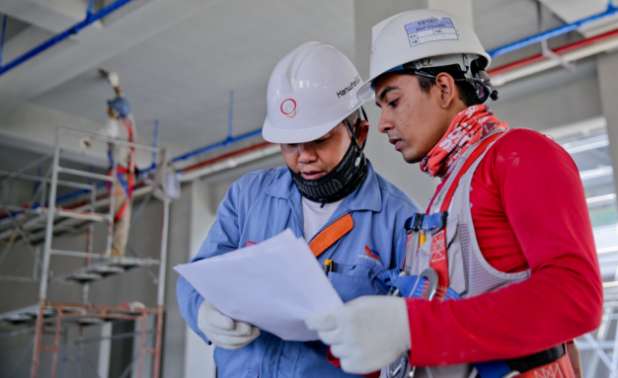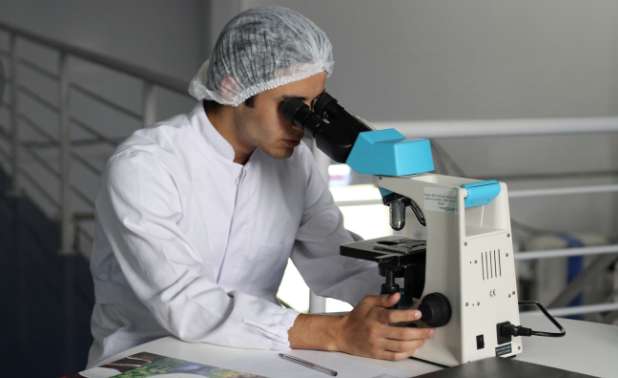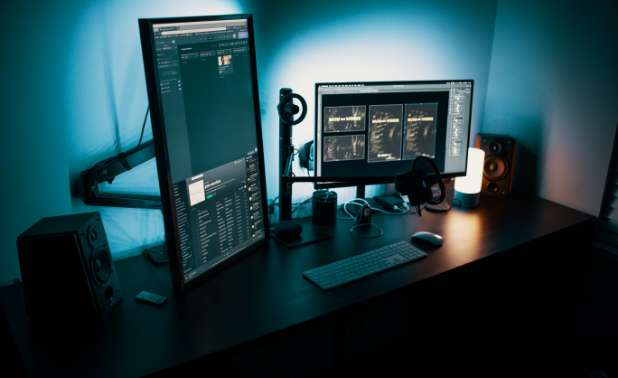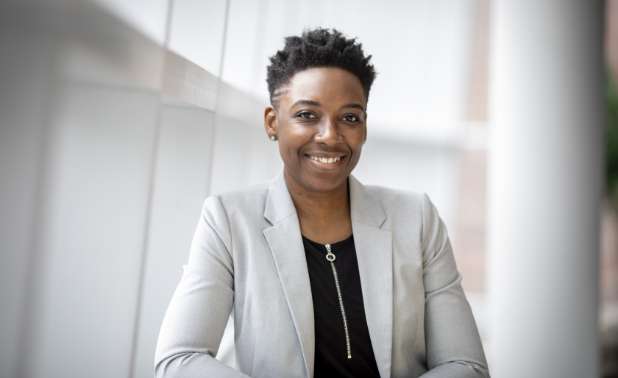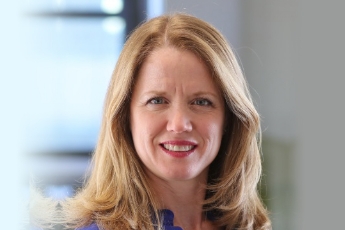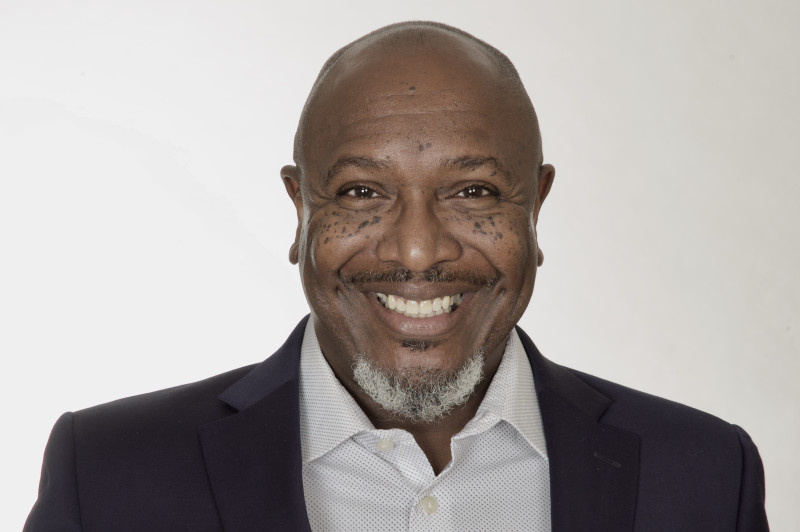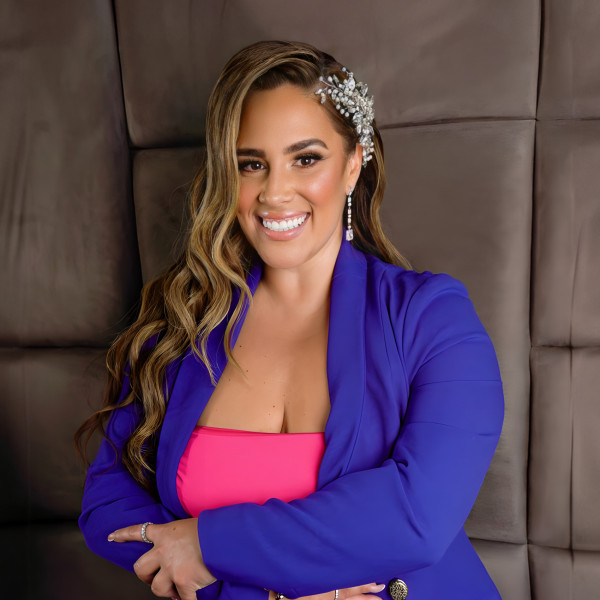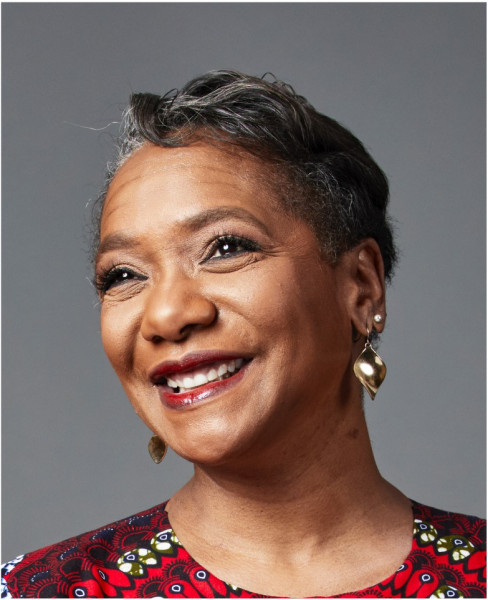Jenny Davis:
Welcome to But First, People, a podcast brought to you by Pride Global. I’m your host, Jenny Davis, vice president here at Pride. Along with my colleagues on this podcast, we will dive into diversity, inclusion, and equity of service and staffing in the human capital industry. Join us each month as we sit down with industry experts to share their stories.
Jenny Davis:
Welcome back to But First, People. Today, I have the pleasure of hosting Kate Goss. For more than a decade, Kate has been a key leader and influencer in the company, helping to mold and grow PrideOne, the company’s managed services and payroll provider. Beyond her professional contributions, Kate has played an integral role in the company’s diversity, equity, and inclusion initiatives. As a founding member of Lioness, Pride’s women equity group, and an active participant in the company’s DE&I initiative, Decidedly Diverse, Kate has championed gender equality, identified and engaged with minority partners, and promoted an inclusive workforce and diverse supply chain—both internally and on behalf of the clients that we serve. Welcome to the podcast, Kate! Thanks so much for joining the podcast today. So excited to have this conversation with you. I really appreciate it.
Kate Goss:
Hi Jenny! Thank you so much for asking me. I’m excited.
Jenny Davis:
Yeah! Well as in the tradition of But First, People, can you give us a little ditty, Kate Goss?
Kate Goss:
A little ditty? Oh, like a song that I have to sing?
Jenny Davis:
Yeah, of course.
Kate Goss:
Ah. Okay. When you said “song,” I didn’t know this is what you meant!
Jenny Davis:
Gotcha!
Kate Goss:
Okay. So, let’s see. [Sings “Over the Rainbow”]
Jenny Davis:
I thought I knew a lot about you, but I didn’t know a song was deep in there like that. That was so great!
Kate Goss:
Thanks.
Jenny Davis:
I know you have it in your genetics, the musical family that you lead. Well, thank you again for coming. I have a few questions to prompt the conversation today, as you know, but I feel like this will be very natural, because you are a person who makes people feel very comfortable, and I’m excited to share you with more people in the world, because you give a lot to Pride Global, and your story’s pretty great. To start out, one of the things I’d love to understand is how you define your job. The question I’m going to use to get you to that place is: imagine an alien lands here and says, "Hi, I’m an alien, I’m from this planet, and I have a question for you. What do you do here?" What would you say?
Kate Goss:
That’s funny. I actually kind of feel like you don’t even have to use the analogy of an alien, because it’s really hard to explain my job even to regular humans—not cocktail party banter! But I think what I would say is, “Here on Earth, people work to make an income to support themselves and their families. What we do is try to facilitate having a positive experience while you do that work, both for the people who work for the company that I work for and helping people find fulfillment in the work that they do—and facilitate movement if they’re not finding fulfillment in the work that they do. Also, trying to help the organizations that are using those people be able to use the people in a way that makes sense and really fits with our cultural norms, our laws, and the way that jobs are supposed to work.”
Jenny Davis:
It’s great. It is complicated, right? I think it’s always this summation of, "Oh, you’re a headhunter?" I’m like, "No, no, no."
Kate Goss:
No. What I tend to say, being on the managed service side of the business, if it’s a 30 second “what do you do?” Then I just say, "Oh, I’m in the staffing industry, you know, like temporary workers," pretty much everybody’s heard of that. If it’s a little bit longer of a conversation and I want to talk about managed services, then a lot of times I’ll say, "We’re like a human resources department, but for a company’s non-employees."
Jenny Davis:
Mm, that’s a beautiful way of saying it. Absolutely. I love that.
Kate Goss:
People are like, "Oh, I get it." So that’s kind of what I’ve landed on.
Jenny Davis:
Ah, that’s great. I love that you included the idea of fulfillment and enjoyment, because I do think that’s something unique to how the framing exists here at Pride, that we always say it’s about the enjoyment or the experience of it. We don’t just say this tactical sort of archaic comment, "We put people to work, we get people jobs." It’s about the experience they have with it. I love that you echo that sentiment because it’s not the first time that’s been said, so that’s great.
Jenny Davis:
How did you find your way into this? Obviously, you’re like, "This isn’t an as easy industry to explain." Well, it’s not really an easy industry to find either! How did you find your way into it?
Kate Goss:
No, that’s right. Especially when I went to school, there was certainly not very much awareness that the industry even existed. I’m old, so...
Jenny Davis:
You’re not old. People who don’t know her, she’s not old.
Kate Goss:
I actually started my career—and I kind of make a joke about this, I started my career in mental health, completely different industry, although broadly applicable, I think, to any professional setting.
Jenny Davis:
Yeah, yes!
Kate Goss:
Then I decided I didn’t want to do that anymore because it’s a super stressful business, and I just wasn’t sure that I had it in me to do that for my whole career. So, I decided to make a shift. I started a master’s program here in New York City at the New School in nonprofit management, trying to do that, like, helping people but in a slightly different way. I have a huge amount of admiration for people in that world, but as I chatted with my fellow students and kind of got their view of what it’s actually like to work in the nonprofit world—you know, those people, a lot is expected of them, and the compensation is very low, which is a shame. Knowing that I was going to be the breadwinner for my family in an expensive market, I just concluded that I probably couldn’t go that direction. The New School had a program in human resources management in the same graduate school, so I just shifted into HR management. When I first came to New York City, I took a job just because I needed a job, so I was actually working at a car dealership.
Jenny Davis:
Oh my god.
Kate Goss:
No shame in that!
Jenny Davis:
No, I love that!
Kate Goss:
And then when I started looking for an HR job, believe it or not, I saw an ad in a newspaper, an actual physical newspaper for a recruiter. I was like, "Oh that’s interesting. That sounds relevant," so I went and interviewed, and it actually was a staffing company, and I thought it sounded like something I could do, and something I’d be interested in it, and that was at this point—you know, let’s just say a lot of years ago, and I’ve been in the industry ever since.
Jenny Davis:
Wow, that’s great.
Kate Goss:
It was in the mid-nineties, let’s just put it that way.
Jenny Davis:
So much has changed and the transition of our industry is wild. I think about it daily. I think about it even since I’ve been in it, 15 years now, how different it looks in the day-to-day of it, and how it was even talked about when you started in it. One of the things that I find interesting—and I’m going to sort of lean into this a lot, Kate, because I look to you a lot as a female leader in our organization, I look up to you a lot, and just—as a woman in our industry, I can only imagine what recruiting in the nineties was from that perspective. I get the sort of Boiler Room, Glengarry Glen Ross vibe about what our industry was then and still has remnants of, if we call it what it is. Surviving through that, was it challenging for you? Because I know how—I would describe it as “pure of heart,” and authentic you are, and true to yourself as a woman. Was that complicated for you, growing up in the nineties?
Kate Goss:
The company that I landed in initially was a little unusual, I think, in that industry, in that the recruiters were in fact a little bit more like what we are here at Pride, in that it was much more heavily base-salary oriented. The commission structure was pretty, I’m going to say “minimal”.
Jenny Davis:
Okay.
Kate Goss:
It was not as aggressive as the following two companies. I started as an IT recruiter, so there was a lot of focus on—and the founder of the company was a technologist himself and he really wanted us to be credible and know what we were talking about—
Jenny Davis:
That’s fantastic.
Kate Goss:
—so there was actually a lot of training done on technology, which at the time was very different than today’s technology. We did a lot of C++ and Unix and Oracle database administrators. I think my intro was not as much of a blast—
Jenny Davis:
Culture shock?
Kate Goss:
—furnace, yeah, culture shock. Now the next couple of companies I worked for, it was definitely more what I would call “traditional,” old-school staffing.
Jenny Davis:
Mm-hmm.
Kate Goss:
That was a difficult balance sometimes, because as you say, it can be very much cowboys out there, and not always... I hate to tar our industry, but it’s a little bit sometimes freewheeling, let’s put it that way.
Jenny Davis:
Yes, yeah.
Kate Goss:
I evolved from a recruiting role to more of an operations and management role where I felt like my strengths were well-utilized, but it was definitely—I mean, you say Glengarry Glen Ross; one of the companies I worked for, which will remain nameless, it was 100% that. It was aggressive, very competitive—competitive with each other, sink or swim—and they were successful in what they did, but that wasn’t an environment that I really felt like I thrived in.
Jenny Davis:
Yeah. Well, speaking of thriving in environments, I get to see you thrive in environments here. And one of the things I admire most about you is the way you lead from a perspective of protection, advisement, and love.
Kate Goss:
[Laughs]
Jenny Davis:
You really do. I don’t want to be derogatory in the term “mother hen,” because it’s not about motherhood, and it’s not about that, but I know you are a mother and I know you’re proud of that fact as well, but I think you really do love who works with you and for you.
Kate Goss:
I do.
Jenny Davis:
I think you really love what Pride is about. How have you found the confidence to be authentically Kate Goss at work, and how do you encourage that in the people you work with? Because you do it masterfully.
Kate Goss:
Oh, well thank you, Jenny. That means a lot coming from you. Going back to that master’s degree, I had one professor, an organizational development professor, that talked about how the traditional org hierarchy, where it’s the triangle with the CEO on the top and everybody else on the bottom—they expressed an opinion: that was actually backwards, that the CEO should think of their job and every successive layer of management should think of their job as supporting the people that report to them. Their job is to give the people who report to them the tools, the training, and the support to do their job well. Instead of thinking of those people as below you, you should think of them as being above you, and it’s your job to hold them up and to help them be successful. I’ve always had that visual in my mind, that it is—that if I have somebody on my team who’s not successful, the first primary responsibility is mine to see, have I given them the tools and the training and the support to be successful?
Kate Goss:
Sometimes I have, and there’s just not a good fit, or they don’t have the skill, or they don’t have the will to do the job that they were hired to do. But in many cases, you really have to look and say—be curious, come into it with an attitude of curiosity and say, "You’re not succeeding, you’re not meeting the performance that we’re expecting. Why? What’s standing in your way? How can I help you?" For me, I’m just who I am. I feel like everyone is deserving of dignity and respect, and so I would approach my colleagues that way—I hope I approach random people on the street that way! It’s just really important to my perception of who I am, and why we’re here on the world, in this world.
Jenny Davis:
That’s great. Well, and I think that leads into the idea of how much effort you put into our diversity, equity, and inclusion and our women’s initiatives. Why is that important to you, Kate?
Kate Goss:
I’ve had a really fortunate life. I’m a white woman from a middle-class family that went to a really good school when it wasn’t extravagantly expensive, but ever since I was a kid—my mom is super socially aware. As you know, she recently injured herself at 82 years old at a political march. But I think, to me, it’s about wasted human potential. If somebody comes from a situation where they weren’t given the opportunities that I was, whether it’s they didn’t have an intact family or supportive parents or books in their home, maybe their family came to this country trying to escape war or poverty—there’s human potential there that is potentially wasted. I think that the world is so much richer the more we are able to create conditions so that people can contribute. I know that sounds like a little cerebral maybe and—
Jenny Davis:
No.
Kate Goss:
—but to me it goes back to that dignity and respect thing.
Jenny Davis:
Yeah.
Kate Goss:
To give people the opportunity to contribute, and how much richer we are. If you look at history, the countries that are successful tend to be the countries where the most people can contribute, and they’re not systematically oppressing women or certain classes of people or whatever.
Jenny Davis:
What an interweaving you just made from the start of describing what it is you do, talking about how you got here, and talking about why inclusion matters so much to you is just this idea—and how you lead—is this idea of allowing people a platform to succeed.
Kate Goss:
Yeah. Yep.
Jenny Davis:
In everything you do, Kate, that’s what I find, that you want to give the person the space to succeed. You want to give them the opportunity and let them try again, a platform for success. As you’re talking, I just find this as a theme for you, which, what a fantastic theme to stand for. If that’s your ethos and why you exist, Kate, what a great thing—"I’m trying to provide platforms for people to succeed.”
Kate Goss:
I think so, and honestly that’s one of the things that I think is super exciting about our industry, about the staffing industry, is because some of these blue-chip companies or whatever you want to call them, they have pretty significant hurdles to get in the door. Sometimes staffing is a way, this is going to sound kind of funny, but kind of a way to sneak in.
Jenny Davis:
Yeah.
Kate Goss:
Then if you shine, then maybe the fact that you didn’t attend the college where they do all their campus recruiting, one of the six colleges or whatever where they do all their campus recruiting—maybe you went to a local state school, but you get in there and you show your stuff, then you have that opportunity to join a great organization—
Jenny Davis:
Great.
Kate Goss:
—and build your career.
Jenny Davis:
Yes.
Kate Goss:
That’s, to me, one of most exciting things.
Jenny Davis:
I also think working in this is such a platform for us to provide that to people. You talked about the bridge to getting into a company, and I look at some of these companies who have inclusion desires. Say you’re a manufacturing company and you want to impact the environment for different groups, you want to change the diversity of your company. Well, you produce a product, and your ability to pivot into that might be way more challenging, and our ability to pivot into a place of changing the direction of lives is pretty easy.
Jenny Davis:
I know you and I both get on passionate diatribes about things like this, but just how impactful we can be in this space, and having this rejuvenation of desire to talk about diversity in rooms and care about it is so exciting for me. I’ve loved being in the room with you because, again, passionate diatribes that that will go—
Kate Goss:
Yep.
Jenny Davis:
—we can share in the excitement, but I just find that such a beautiful thing about our industry. How does diversity impact staffing, how do we as an industry frame that? Because I think we look at our clients and say, "Okay, what are your goals? We’ll help." But what do you think our industry, staffing, needs to do to improve our view on diversity?
Kate Goss:
That’s a great question. I think we’re actually in a great position to educate our clients and to try to move certain needles that might be those hidden obstacles for certain populations, whether it has to do with—what are the kind of people that are more likely to have had an encounter with law enforcement, which I think is a big one. Yes, of course companies have to have standards, and some companies are regulated and they don’t have any say in the matter, but not all, and so maybe encouraging people to be a little more sensitive to those types of issues that might be in somebody’s background, and being open to considering a broader range of people. Same with education or gaps in employment. I’ve seen so many people that, "I had to take a year off to take care of a parent who was ill," because they couldn’t pony up for some kind of live-in help or whatever.
Kate Goss:
So, sensitizing our clients to not ruling out talented people because their resume reflects some of the challenges that they’ve had in their life, I think that’s one way that we can impact diversity within our client companies. We should look at ourselves as well. I think one of the things I know that here at Pride we’ve been working on for a couple of years now is… Hiring through referrals is a wonderful way to hire, it also duplicates the workforce that you have.
Jenny Davis:
Yes.
Kate Goss:
Looking at trying to kickstart a virtuous cycle where, as you hire more diverse people, then they will have more diverse networks, and you’ll be able to just continue to grow and be able to bring more people into the doors. Then, again, it becomes this cycle. Also I wanted to just... I thought about something, about temping, because I did temp when I was in college as a summer way. I thought that was a great way to get a view into the culture of the companies that you’re working for. As a temp, even just as a receptionist—this might sound weird, but in half an hour, I could kind of tell what the culture was of the company where I was.
Jenny Davis:
Absolutely you can.
Kate Goss:
Sitting at that front desk.
Jenny Davis:
Mm-hmm.
Kate Goss:
Servicing those clients, we kind of have that view too.
Jenny Davis:
We do.
Kate Goss:
And, you know, there’s only so much you can do!
Jenny Davis:
Yes. Right, right.
Kate Goss:
But you can make observations, maybe, if you’ve built a strong relationship, and the person is open to hearing what you have to say.
Jenny Davis:
Yeah, recruiting is a bit of a voyeuristic job.
Kate Goss:
Yeah, totally.
Jenny Davis:
I always say I love it, because I will likely never work in a large corporate environment—I just don’t think it’s my style—but I love being close to them, and I love seeing what they do, and I love seeing how they function, to your point. I’m likely never going to be an Oracle DBA, but I like looking at them, and seeing what they do, and asking them questions. I think it’s such an industry of curiosity and, I think that’s great. One of the things you said about the funnel, and this idea of “stop eliminating before you see, before you interact.”
Kate Goss:
Right.
Jenny Davis:
I do—I agree Kate. I think that’s such an opportunity, is everyone talks about “top of funnel.” For those not in our industry, it’s this idea of who’s coming in the door. What I think companies sometimes fail to realize—because they haven’t reviewed things in 10 years or it’s not a priority for them—is who are you eliminating before you even see them, talk to them, speak with them, all of it? I think that I agree with you, and it’s such an opportunity. If you want to talk about “top of funnel,” look at what door you’ve closed before they even get to the funnel. I do, I agree. I think it’s an opportunity for us to insert ourselves, and ask questions, and actually advise more than just answer to.
Kate Goss:
Yeah.
Jenny Davis:
I’ve found a turn in staffing in that way, in my mind. I think we were often viewed, when I started in this, purely as a vendor.
Kate Goss:
Order takers.
Jenny Davis:
Yeah, yeah. Pencil and paper. They procure us in the same way they procure cardboard, but we’re people, and we serve people. I think the human element of that is key in terms of how we’re going to have to evolve this if we sustain, and in the way we’re growing and thriving—obviously people need us, and they want us to.
Kate Goss:
Yeah. Yeah. Agreed. Seeing more and more of those sort of vocational—offering the trainings, I know we’re talking about it internally, and more staffing companies I see are moving in that direction. Part of it’s just a reaction to the tight labor market, but it really, I think, is another way our industry can start to reach out into communities and start to offer those opportunities as we talked about, give people a chance to explore things that maybe they wouldn’t have thought about otherwise.
Jenny Davis:
Finding their platform for success.
Kate Goss:
Finding their platform for success. That’s right.
Jenny Davis:
Yeah, I agree.
Kate Goss:
Yep, yep.
Jenny Davis:
So great. Well, Kate, you’re such a creative person and you are so passionate about so many things. I can talk about a book and you get excited: we talk about a podcast, you get excited. So, if you weren’t doing this, what would you be doing with your life?
Kate Goss:
Oh, that’s so interesting. Sometimes I think I should have gone to law school. Didn’t seem like a good idea at the time, but there’s something, that slightly OCD side of me that loves—not to be a litigator, because I’m not combative enough, but I think there’s something really, again, I guess being idealistic about the law and about the legal system and how everyone is equal under the law—or that’s how it’s supposed to work. I think public interest law, that sort of thing, I think would be pretty cool. And that would probably be that path not taken.
Jenny Davis:
I can see it.
Kate Goss:
Might have been fun.
Jenny Davis:
I think it must be a theme in leadership of our industry is that when people say, "I could have done this, I could have done that," I think it’s always true. I know when I interviewed Tim Tobin, I knew he wanted to be a firefighter. I was like, "Yeah, you could be a firefighter."
Kate Goss:
He could totally—
Jenny Davis:
When you’re like, "I want to be a lawyer," I’m like, "You could be a lawyer," In that way, I can see it and you can envision it. I think it is our interest in being exposed to so many things, is we can sort fit ourselves into those molds or say, "Absolutely that’s not me." I think in our curiosity and exploration of careers, we also can have a self-reflection of, "I could do that," and there’s—
Kate Goss:
I could do that.
Jenny Davis:
Be like, "I could do that," and we like to have those conversations then, because we put ourselves in those places.
Kate Goss:
That’s right, and the voyeuristic part is, as a woman, as a professional woman and somebody who kind of came into it sometimes with—I don’t want to say odd, but a little intimidated maybe—by senior business leaders, these—let’s just call it out, typically these white men that are in these powerful positions.
Jenny Davis:
Yeah.
Kate Goss:
Then you get to know them a little bit, and you’re like, "They’re not all that."
Jenny Davis:
Exactly. That is a great way to say it. I think it is. It’s about coming in the room, and I know you and I have talked about that, and worked on that, and we talk to the women who work here about that, is this feeling of: don’t come in with preconceived notions of who you are and who they are, and own the room. I’m very proud of the work that you’ve done, and I hope you are too, to help the women of Pride feel that, Kate, because I think you own the room for many and letting people see that.
Kate Goss:
Thanks. I think Pride gives us that opportunity. The leadership here is very supportive.
Jenny Davis:
I would agree.
Kate Goss:
And that helps.
Jenny Davis:
Yeah. They’ve given us a platform for success and a platform for our voice. I couldn’t agree more. Kate, it’s such a pleasure as always. I could talk to you all afternoon, but thank you so much for doing this, and for sharing with us your story and your passions, and it’s always a pleasure. Thank you so much.
Kate Goss:
It’s been so fun. Thanks so much, Jenny.
Jenny Davis:
Thank you so much, Kate, for joining on the episode. Thank you for sharing your story and your journey with us. If you have any questions for Kate or myself, please email us at butfirstpeople@prideglobal.com, and also don’t forget to like, share, rate, and subscribe to our podcast. Have a great day and we’ll see you next time on But, First People


